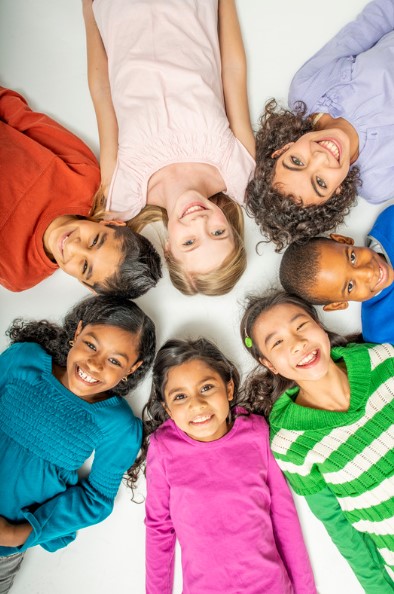How can we talk to young children about differences and the importance of diversity?
From an early age, children begin to form their own ideas about the world and the people in it. It is essential to take advantage of these early years to sow the seeds of respect and tolerance. The exact age to start these conversations depends on each child’s development, but it is usually between 5 and 8 years old, when they are beginning to develop a greater awareness of themselves and others. Let’s start at home. Being aware of and respecting differences within the family is the first step. In preschool and daycare, we can teach children in simple and fun ways about diversity and inclusion. If we start from a young age, we will foster more tolerant and open-minded children.
Going deeper with activities
A practical activity is to help the child recognize themselves. We can use mirrors, books with different skin tones (such as “The skin you live in”), and materials such as construction paper, paints, and scissors. By creating self-portraits, children can express their opinions and share them with others. In addition, we can invite children to describe their feelings when looking in the mirror or creating their self-portrait. This personal reflection will help them better understand their own identity and value their unique characteristics.
Connecting with the real world
Diversity is an important topic and respect for others is essential. We must promote it in all areas, from education to work. Although it may seem difficult to teach this to young children, it is crucial to address topics such as different cultures and inclusion to create a fairer and more equitable world. We can relate these concepts to everyday examples, such as the diversity of foods we try, the different languages spoken around us or the different ways of celebrating holidays.

Benefits of teaching diversity
We live in an increasingly globalized and diverse world, so teaching children to live with different people is essential for their future. When we teach about diversity, we develop empathy, reduce prejudices, prepare the child for the future and help raise self-esteem. The differences of others are accepted, acceptance is encouraged, and stereotypes are diminished. Everyone feels valued and accepted in their individuality, cultivating a social environment of healthy integration.
Long-term benefits
Diversity is an important issue and respect for others is essential. We must promote it in all areas, from education to work. Although it may seem difficult to teach this to young children, it is crucial to address issues such as different cultures and inclusion to create a fairer and more equitable world. This has a positive impact on the economy and sustainable development. By teaching children to value diversity, we are preparing for future citizens who are more empathetic, tolerant and capable of building meaningful relationships with people from different backgrounds.
Contribution by Precious Moments Childcare, LLC.




